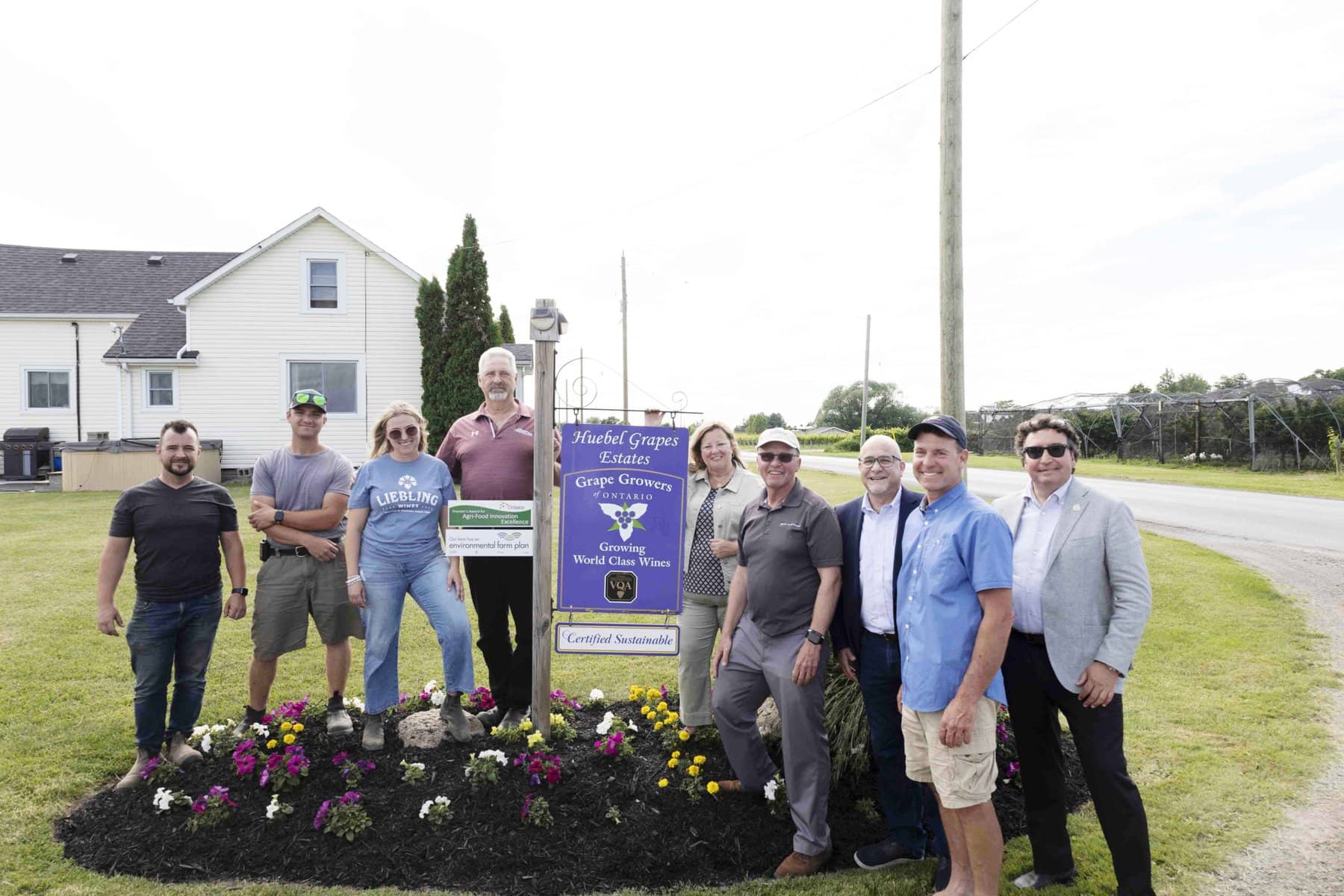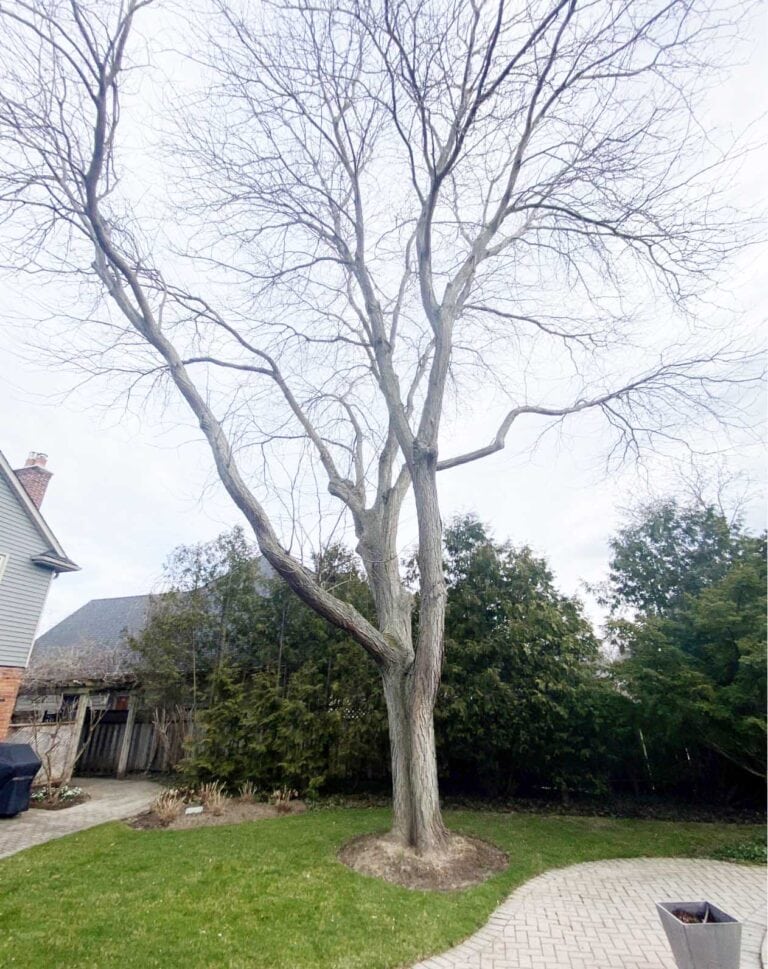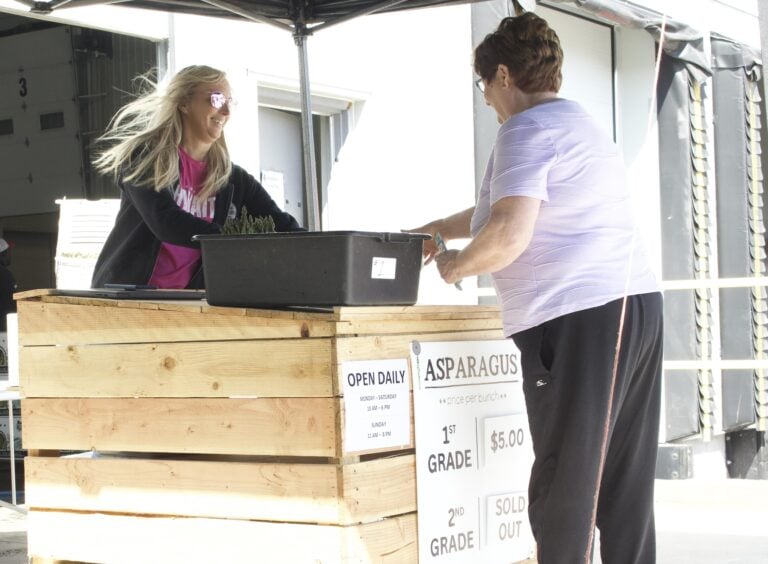After harsh winter weather last year set many of Niagara-on-the-Lake’s grape growers back, the provincial and federal governments are dedicating $5 million in disaster relief funding to give farmers across the province a boost.
Ontario’s Agriculture Minister Lisa Thompson visited Huebel Grape Estates on Line 3 Road last Thursday to celebrate not only the previously announced funding for Ontario’s grape growers but also for the unveiling of the provincial wine and grape industry’s “Certified Sustainable” growers sign.
“Last year when we were here, and we saw clearly the devastation of the winter kill, I knew that we couldn’t waste any time,” Thompson told The Lake Report.
Eligible grape growers can apply to have up to 70 per cent of the cost covered of replacing or renewing lost or damaged grapevines. Thompson said the province worked with the federal government to launch this initiative.
The funding is given through the Sustainable Canadian Agricultural Partnership and delivered by Agricorp, which connects farmers with programs such as these.
Many grape growers continue to struggle after the harsh winter of early 2022 caused significant vine damage on many farms.
According to a news release from Grape Growers of Ontario, grape production was down 44 per cent in 2022 and reduced farm gate value, the product’s market value minus selling costs, by $49 million.
Erwin Wiens, a NOTL councillor and grape grower, said not only did growers lose their source of income, but now they have to renew everything they lost, which “takes an incredible amount of energy and time.”
Renewing a vineyard is labour-intensive and costs a lot of money, sometimes upwards of $35,000 an acre to replace the vines, said Wiens.
For him, the funding announcement was welcome news.
“Every little bit helps and that’s why we’re always grateful,” he said.
Matthias Oppenlaender, chair of Grape Growers of Ontario and owner of Huebel Grape Estates, said applications for growers will open in July to disperse the funds.
Growers can apply through the Canada-Ontario Grapevine Winter Injury Initiative (2021-2022).
News of the Certified Sustainable signs was also celebrated last Thursday, June 22.
The Sustainable Winegrowing Ontario Certified program created by the Ontario Craft Wineries and Grape Growers of Ontario looks to ensure wine is made more sustainably.
According to the program’s website, this means that during production, winemakers are being environmentally friendly and respecting natural resources, involving good business practices and are committed to social responsibility in their communities.
“This is important for the entire industry, from the vineyard to the glass, so both the winery and the vineyards are certified sustainable,” said Debbie Zimmerman, chief executive officer of Grape Growers of Ontario.
It started off as two separate programs in 2007, but in 2021, the two programs were merged together to create the Sustainable Winegrowing Ontario Certified program.
The Certified Sustainable sign will hang on participating vineyards, and Certified Sustainable labels can be found on Ontario VQA wine bottles, beginning with the 2021 vintage.
“(It) goes from the vineyard to the wine knowing that what you’re getting is going through sustainability journeys,” said Jessica Solanki, assistant vineyard manager at Huebel Grape Estates.
Announcing signs was a good first step in the right direction, said Zimmerman.
More than 100 vineyards and wineries are certified sustainable through the program, she said, and she hopes the number will increase over time.
On the program’s website, it says its vision is to have all of Ontario’s VQA wines certified sustainable by 2030.
“We’re working towards a carbon-negative program in the future,” said Zimmerman.
The first step to becoming sustainable, she said, is to make sure farmers understand what sustainable practices they should be using on the farm.
Farms will then be audited by a third party, and if successful, they’ll be certified.
Farms will continue to be audited annually to make sure proper procedures are being followed, and to offer any advice.
Solanki said becoming certified sustainable is not only good for right now but also for future generations.
“I feel like sustainability also means resilience,” said Solanki.
“It’s important for my generation so that we can keep farming but (also) for the generations coming after us,” she added.
Along with the $5 million relief funding for grape growers, the government announced $5 million in relief funding for beekeepers.











